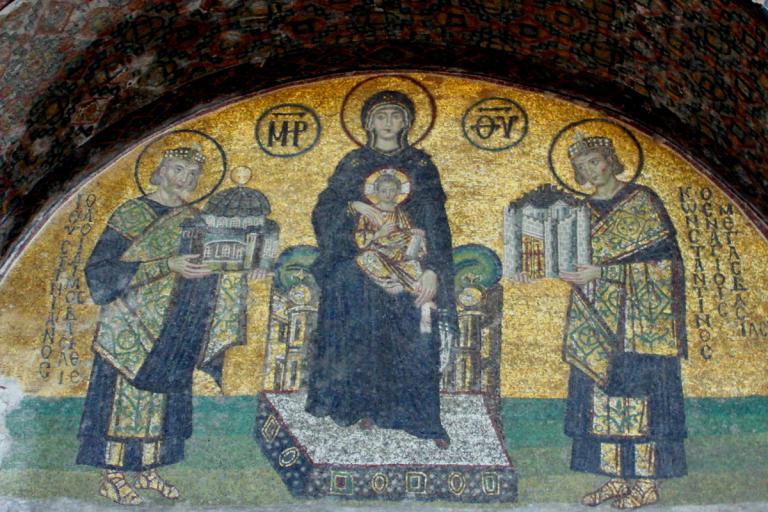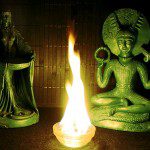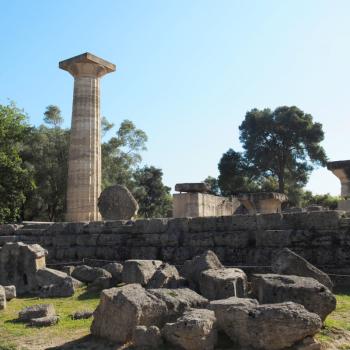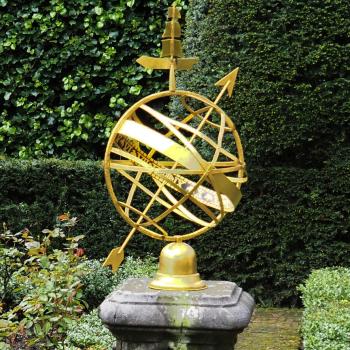This post was originally scheduled for last weekend. I pushed it out when I needed to write about a current conflict instead. I thought about putting it on the shelf until the next blatant example of monotheist, New Age, or materialist derailing – that would generate the most blog traffic. But after some consideration, I think it’s important to talk about this now. We need to understand the environment in which we work, so we can do a better job of articulating polytheism, building polytheist community, and being good polytheists.
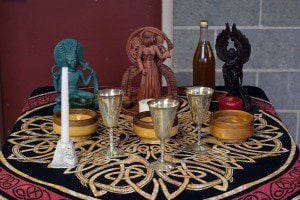 The Polytheist Movement is currently dealing with some major questions of identity and boundaries. This is not surprising. While polytheism is among the oldest of religious outlooks, it is only within the current generation that it has again become a viable religious approach for most of us in the West. We’re in the earliest stages of figuring out who we are and what we want to be.
The Polytheist Movement is currently dealing with some major questions of identity and boundaries. This is not surprising. While polytheism is among the oldest of religious outlooks, it is only within the current generation that it has again become a viable religious approach for most of us in the West. We’re in the earliest stages of figuring out who we are and what we want to be.
One of our most important issues is the question of what we mean when, in the words of Edward Butler, we say that polytheism affirms “the genuine existence of many Gods.”
I see the Gods as real, distinct, individual beings who are worthy of our honor and respect. When those of us with similar views start to explore the implications of the genuine existence of the Gods and the depth of our experiences of Them, we are inevitably derailed (or at best, distracted) by those who insist their metaphorical, archetypical, and other vaguely defined definitions of Gods are the same as ours.
They aren’t. They are perfectly valid religious approaches, and who knows – they might be more right than I am. But they’re not the same thing.
I’ve already talked about the commonly held but fallacious idea that every religion should be for everyone. In this post, I’d like to explore some of the reasons why very different conceptions of the Gods are often assumed to be “really all the same.”
Monotheism and The Nicene Creed
For almost 1700 years, the Nicene Creed has defined “God” in the Western world. It includes several points of Christian doctrine – the most relevant to our purposes is the first line: “I believe in one God, the Father Almighty, Maker of heaven and earth, and of all things visible and invisible.”
The problem with the Nicene Creed is that it doesn’t match the lived experience of most people. The world as we actually encounter it is better explained by many Gods of limited power and scope than by one almighty God. Whether for reasons of theology or practicality, the Catholic church accommodated this lived experience with their hierarchies of saints, angels, and other semi-divine beings. They maintained their fidelity to the Nicene Creed by saying “but those aren’t Gods.”
Then the Protestants tried to do away with even that. They succeeded (in parts of the world, anyway) because of their missionary zeal and because the Catholic church had become corrupt, not because of the strength of their arguments.
Even if you are among the rarest of birds who grew up in a Pagan or polytheist family, the assumption that less-than-almighty beings are not Gods is part of the culture in which we live. Affirming that Zeus, Brighid, and Auset really are Gods is one step on the journey to polytheism, but it is not the entire journey. The tentacles of monotheism are many and strong – it will take several generations of polytheist restoration before the idea that there is only one God and that less-than-almighty beings cannot be Gods become propositions that ordinary people consciously examine and not assumptions they subconsciously accept as self-evidently true.
The New Age
The New Age is a reaction against Christian fundamentalism for a consumer society. It’s feel-good faux spirituality for those who are unwilling or unable to do the deep, difficult, and often painful work of developing real spiritual depth.
And it’s very popular, particularly among the privileged. New Age ideas are almost always expressed in monotheistic language (for the reasons outlined above) but they are vague to the point of meaninglessness. The cynic in me says New Age teachers want to make sure they don’t scare off any paying customers, but I think that’s probably too cynical. I think most really want to be accepting of everyone but they can’t figure out how to do it and still honor our religious differences (it’s possible but it’s hard… and it’s also beyond the scope of this post).
Here’s a link to a piece on a TV special by the High Priestess of Feel-Good Spirituality, Oprah Winfrey. She asked numerous New Age gurus “what is your definition of God?” Here are some of the responses:
Wayne Dyer: God is the highest place within each and every one of us. It’s our divine self.
Marianne Williamson: An all-encompassing love that is the source of all, the reality of all, and the being through which I am.
Eckhart Tolle: God is beyond all the forms of life, but also indwells every form of life as their essence. God is both beyond and within.
Gabrielle Bernstein: My definition of God is the ever-present essence of love.
Marie Forleo: Everything in the creative force.
Iyanla Vanzant: All that is. Everything. Everything. Breath, life. Just get Webster’s Dictionary and throw it on the floor. It’s everything… God is everything.
Deepak Chopra: God is the evolutionary impulse of the universe. God is infinite creativity, infinite love, infinite compassion, infinite caring.
What do these ideas have in common? They’re vague. They’re inclusive. And they’re nice. So they’re popular – so popular that there are regular screeds against them by orthodox monotheists, to no avail.
Now, there’s a current of pantheism here. Pantheism is a very old and very valid religious outlook – I often wonder if it’s not the best explanation for the universe as a whole that includes trees, squirrels, planets, stars, humans, spirits, and Gods. That too is beyond the scope of this post.
What’s important here is that these vague, inclusive, and nice ideas permeate mainstream society. They’re a strong influence on Paganism and they make their way into polytheist discussions. But while they’re nice ideas and they might (might, I say) be true ideas, they aren’t polytheist ideas, because they do not affirm the genuine existence of many Gods.
Scientism and Materialism
 Science has done great things for humanity (medicine, information technology). It has also done terrible things (climate change, weapons of mass destruction). Science is a wonderful servant and an awful master.
Science has done great things for humanity (medicine, information technology). It has also done terrible things (climate change, weapons of mass destruction). Science is a wonderful servant and an awful master.
I’ve ranted about this enough in the past – I’m not going to go into great detail here. I’ll just point out that even among many monotheists, there’s a strong assumption that everything has a rational explanation that is grounded in science. If it can’t be measured and tested, if it isn’t falsifiable, then it can’t exist.
And so when polytheists talk about their experiences of many Gods, a materialist assumes they cannot be talking about encounters with actual spiritual beings. It must be some psychological phenomenon. They use the language of monotheism and the thinking of the New Age to reinterpret polytheists’ experiences for them.
How nice of them.
If Any of This is You
Please notice that I did not say that if you’d only examine your assumptions and challenge the mainstream you’d accept the genuine existence of many Gods and become a polytheist. Some of you would. Many more would not – and that’s OK.
The Gods are who and what They are, but our many religions and religious outlooks are all human inventions. Those that are meaningful and helpful to a particular group of people in a particular place and time expand and grow. Those that aren’t, shrink… at least in a religiously free society. Forced and coerced conversions – the fate of many of our polytheist ancestors – are another matter.
Honest religion isn’t about finding the One True Way, it’s about finding the way that works for you, contributes to the common good, and respects the sovereignty of others.
The Boundaries of Contemporary Polytheism
Polytheism is not a religion. Polytheism is a religious outlook that affirms the genuine existence of many Gods, or in slightly different words, is the religious regard for many real Gods. There are many polytheist religions and they have different thoughts about the Gods and how best to relate to Them. There are many ways to be a polytheist.
But those many ways don’t include monotheism. They don’t include New Age feel-good thinking. They don’t include materialist and scientistic rationalism. Those ways may be good and helpful, and in the right context they can be Pagan. But they aren’t polytheist.
If any of these approaches are meaningful to you, I’m happy for you. Please, practice them as deeply as you can. Feel free to advocate for them in the public square – that’s your right and I will support that right to the best of my ability.
But please do not insist that they’re polytheism, or that somehow “it’s all the same.” It isn’t.
More Than a Name
Would the problem be solved if I and others like me called ourselves hard polytheists or devotional polytheists, as I often (but not always) do? I wish it would – I’m really not interested in fighting over ownership of labels.
But how long would it be until someone said “my archetypes genuinely exist, so I’m a hard polytheist too”? Or “I’m devoted to my metaphorical gods, so I’m a devotional polytheist too”?
The problem is not that we don’t have or don’t use language to describe our differences. The problem is that too many people are unable or unwilling to recognize our differences and to understand why they matter.
Why This Is Important
The majority of polytheists want to hold our theological and philosophical debates in public. There are a few curated publications and editor-controlled websites which serve as “safe spaces,” but in general we want our conversations to be open and accessible. The history of religious decisions being made by credentialed clerics behind closed doors is not good. We know we can do better by being transparent.
There will be disagreements (at times, passionate disagreements) and while I hope they remain civil, we know we must have them. We’re negotiating the boundaries of polytheism and of our individual polytheist traditions. We will have beginners and seekers and we welcome them, even though we know some of them will require more education than others. These are issues any growing religion must deal with and we’re glad to have the opportunity to deal with them.
But we do not want to have the same foundational-level arguments with the same people over and over and over again. We do not want to spend our limited resources defending ourselves against those who would pull us down into nice vague mediocrity in the name of inclusion.
We do not want to be needlessly distracted from our striving to be good polytheists who honor, worship, and form relationships with many real Gods.
There are many conversations polytheists need to have as we restore the Way of the Gods, and we need to not have them derailed by monotheist, New Age, or materialist influences.


